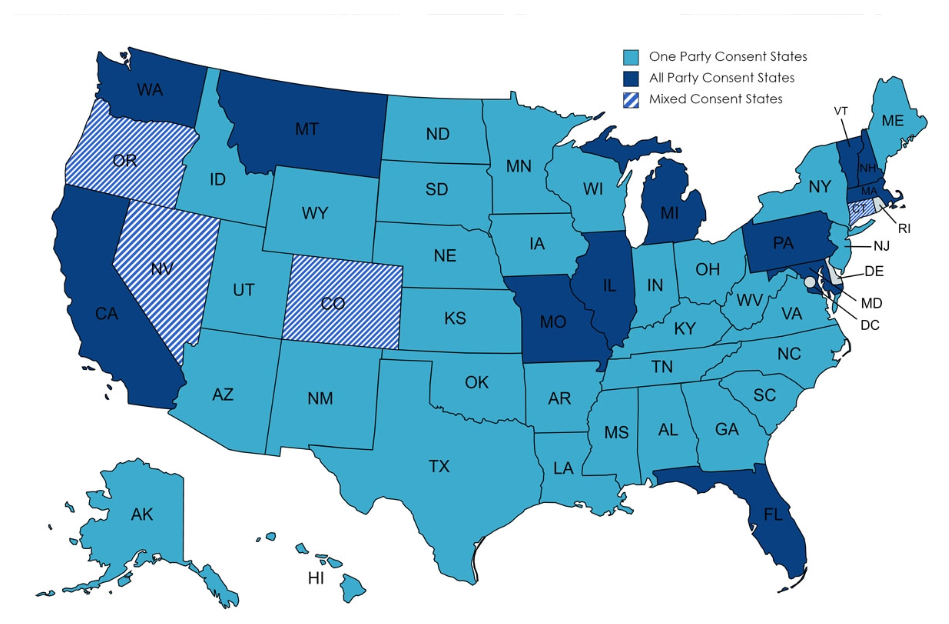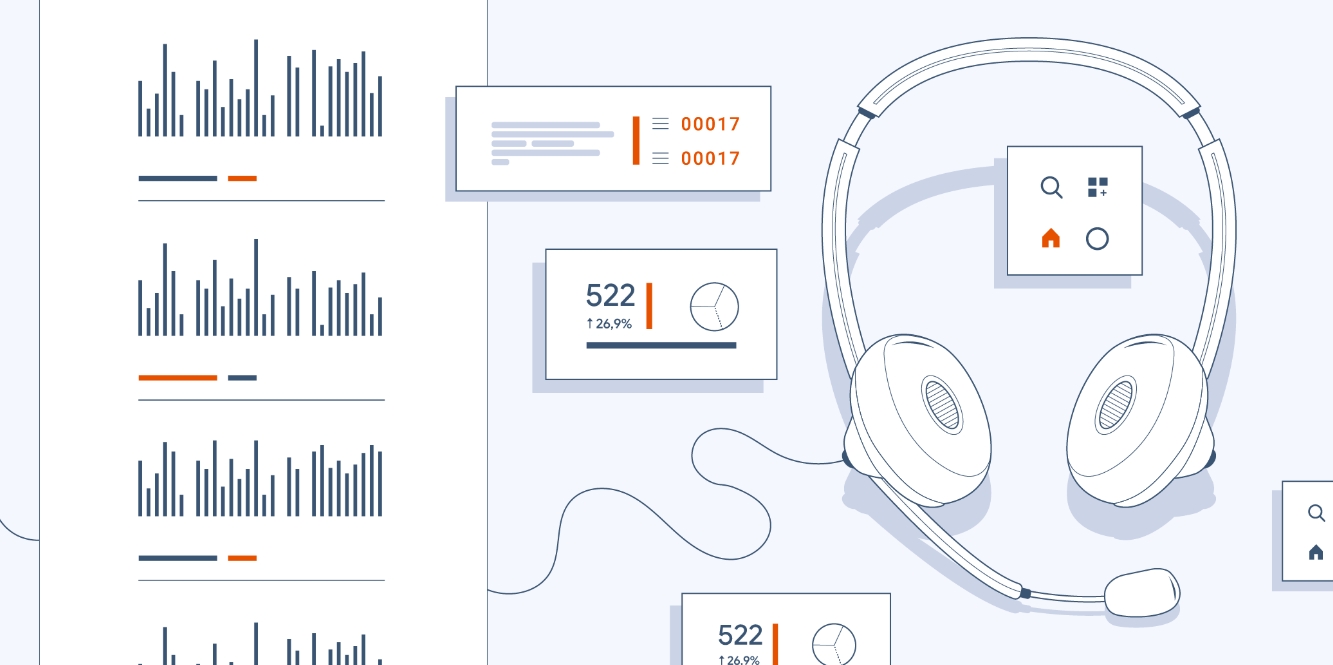Are You Allowed to Record Phone Calls? FCC & TCPA Recording Tips
Telephone recordings have various legal aspects that business owners must consider to improve customer service. Trust in the platform or brand is ensured primarily by compliance with FCC 1-to-1 Consent, GDPR (in Europe), and CCPA. User privacy rights are a priority.
The majority of businesses in the United States record conversations for legal purposes, quality assurance, and staff training. However, many are unaware of the specific laws on recording conversations in the states where they operate.
And it’s not getting easier for international businesses. For businesses operating in multiple states or countries, it’s important to have a clear policy on call recording data that complies with the individual rules of these states.
So let’s shed light on how you should record calls to stay on the legal side of the fence.
Compliance Call Recording: What Are Legal Requirements?
Conversation recording can be successfully used only by adhering to legal regulations and data privacy laws, which altogether helps to avoid potential issues and strengthens consumer trust.
There are two categories of laws for recording conversations:
- Unilateral consent (one-party consent states) is when the confirmation from one party is enough to start call recording
- Bilateral consent (two-party consent states) is when the confirmation both parties is required to start call recording
In the United States, laws regarding one-party consent recording vary by state, with federal law allowing unilateral consent. Internationally, laws can be even stricter. For example, in the European Union, the General Data Protection Regulation (GDPR) requires huge fines for non-compliance — up to €20 million or 4% of a company’s annual revenue, whichever is greater.
Call Recording Laws in Different US States
Explore the U.S. two and one-party consent states map:

Source: Recording Laws
Call recording laws vary greatly from state to state. Here are the main points:
FCC Consent Rules
In the United States, the rules for recording telephone calls are governed by the Electronic Communications Privacy Act (ECPA). The most common rule is that at least one party to the conversation must consent to the recording:
- In 38 states and Washington, D.C., including New York, Texas, and Illinois, consent from one party is sufficient to record a call.
- In 12 states, including California, Florida, and Pennsylvania, recording a call requires the express consent of all participants. Violating these laws can result in serious fines.
If in doubt, it’s better to inform all participants about the recording — it’s safer, more transparent, and in the spirit of good faith. At least check your state’s laws before recording — it’s an investment in your reputation and protection from trouble.
International Call Recording Laws Compliance
If your business operates internationally, you need to consider international regulations, including the General Data Protection Regulation (GDPR) that requires:
- Clearly explaining the purpose of the recording
- Obtaining explicit consent from participants
- Protecting call recording data from misuse
Your Guide to Full Compliance with FCC Regulations
The scheduled FCC rules for consumer consent collection require companies to obtain individual prior express written consent from each consumer before contacting them through an ATDS call or text.
Here are some other FCC-driven lead generation changes:
- Call recordings must provide irrefutable evidence that consent was given during each call. This is especially important in the event of audits or disputes.
- Businesses are required to monitor calls in real time and can verify when and how consent was obtained.
- Consent must be given before marketing communications begin.
Call recordings are a quality indicator: you can check how well employees follow the new requirements when obtaining consent. Preparing for the changes is possible by following FCC one-to-one consent rules and providing real-time call monitoring for your brand.
Here are the parties that are likely to be affected by the FCC update:
| Insurance companies | Change customer consent strategies |
| Retailers | Update targeted marketing, call tracking and consent recording |
| Contact centers | Ensure following the new recording rules for all outgoing calls |
| Telecommunications | Refine consent management technology and adapt restrictions for AI tools (voice calls and chat bots) |
Do these simple things to stay FCC-compliant:
- Check if your consent forms are set up correctly
- Use special widgets and APIs to automate consent collection
- Train your team on the new FCC requirements
TCPA Call Recording Laws
Under the Telephone Consumer Protection Act (TCPA), businesses must obtain prior express written consent from consumers before making marketing calls or recording such calls. This ensures transparency and consumer control.
Key TCPA Requirements
- Prior written consent — Consumers must explicitly agree to receive marketing calls and have the call recorded.
- Clear notification — Consumers must be informed that the call will be recorded.
- Opt-out option — Consumers must have the ability to revoke consent at any time.
To comply with TCPA requirements, businesses must implement effective call recording systems that capture conversations and track consumer consent. These systems help maintain accurate consent records and ensure compliance with TCPA regulations, reducing the risk of penalties.
Employers often listen to calls for training or quality control purposes. This is usually permitted, but notice and TCPA consent requirements must be followed.
To comply with the law, follow these rules:
- Notify employees and participants that calls will be recorded or monitored.
- If necessary, obtain written or verbal consent.
- Use software that automatically notifies you of monitoring.
Penalties for Violating Call Recording Laws
- Reputational damage: Violations can damage a company’s image.
- Financial penalties: From thousands to millions of dollars.
- Civil lawsuits: Consumers can sue for privacy violations.
The Importance of Compliant Call Recording
Complying with call recording laws is about more than avoiding fines: it’s about transparency, customer trust, and protecting your business. Stay on top of data privacy developments to stay one step ahead. After all, those who follow the rules not only sleep soundly but also build successful businesses.




























